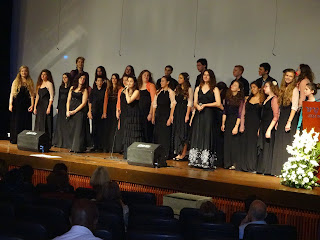I feel a sense of pride to write the following the story of Yad Sarah as my daughter- in-law is heavily involved as a volunteer in the organisation, acting as manager of a branch of the organisation in the city where she lives. She spends time day, and sometimes night, to ensure the smooth running of the branch.
So many countries have adopted this model which helps to save vast amounts of money that would otherwise be spent in the healthcare system. My wife and I have had cause to use the services in the past, so we know how effective they are.
Rivka Borochov 12 Sep 2013
Yad Sarah saves Israel an estimated $400 million in
medical costs every year
by offering equipment and support to people in their own
homes.
The 6,000 people who volunteer for Israel’s charity Yad
Sarah are known by people in
their communities as angels, not only because they help
save the Israeli economy
an estimated $400 million in medical costs every year,
but also because they offer their
time to bring a longer and higher quality of life to
people who might otherwise have to
be cared for in hospitals or geriatric centers.
Through its 102 branch offices, Yad Sarah lends out more
than 300 different kinds of
medical equipment to Israelis and tourists -- rich or poor,
Jewish or Arab.
Yad Sarah also provides 16 support services, from rides
for the disabled to the
doctor’s office or just out for a cup of coffee with
friends, to toy libraries for parents of
children with special needs.
About 20 percent to 30 percent of the people who turn up
at the Jaffa office are from
the Arab community -- Muslims and Christians who come to
get wheelchairs,
respirators, crutches, cribs, breast pumps, sleep apnea
devices, baby monitors,
hospital beds and all the other items Yad Sarah lends out
for up to three months with
nothing more than a small security deposit asked up
front.
Countries including Turkey, El Salvador, South Korea,
Italy, Jordan, Angola and
South Africa -- and many more -- have adopted the Yad
Sarah model in various
forms,
Yad Sarah started out as a small charitable fund in 1976
in the apartment of Uri
Lupolianski, a young teacher who would later become the
mayor of Jerusalem. In his
religious community in Jerusalem, he noticed that every
winter children would be
taken to hospitals by ambulance and then returned home
the next day.
The reason for this burden on the healthcare system, he
found, could be fixed with
humidifiers and ventilators to moisten the dry air
created by the heating systems in
these old Jerusalem apartments. But the parents in his
neighborhood couldn’t afford
the basic equipment to solve the problem every winter.
Creative solutions to improve life quality
Yad Sarah offers a whole range of services: clean linens
for the bedridden, security
systems for the lone elderly, meals on wheels, home
visits, legal services, and even a
service to help people put their life story into print to
share with their family after they
are gone.No other country in the world has this kind of
service with everything at one address.
Anat Ben Zaken, who is in charge of the Life Story
operation, says that Yad Sarah
volunteers created about 100 Life Story books last year
alone. A volunteer who is an
expert in writing will arrange 10 to 15 visits at the
home of the elderly or dying person
so their life story can be recorded digitally. Later it
is transcribed and edited into a
book to be shared with the family.
This is especially important for Holocaust survivors,
adds Feldman, because often
they haven’t told their story to anyone in the family
before; the memories were too
painful.
But easing the pain is what Yad Sarah does best –– and it
does it with an impressively
low budget.
Most of Yad Sarah’s operational costs come from inside
Israel, from donors and also
from clients who donate the security deposit after an
item has been returned.
The massive organization – Israel’s largest charity and
the world’s largest lender of
medical equipment -- employs only 200 people and relies
on its thousands of
volunteer “angels,” mainly pensioners, to staff
management and office positions at its branches.
Feldman says Yad Sarah’s annual operating budget is about
NIS 80 million, or about
$20 million, and 94 percent of that comes from donations
locally and internationally.
They believe in keeping people at home in their own
communities as long as possible,
for both humanitarian and economic reasons.














